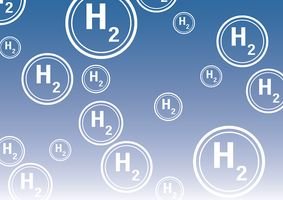Hydrogen Economy Review: Earth day, climate summit and transportation dominate the market
Several hydrogen production projects have been announced this week, including Messer and Uniper.

This week the market has been dominated by carbon cuts pledges. Governments and businesses have reaffirmed their commitments for their long term carbon emission targets. Some goals look very ambitious, and it is not easy to ascertain how these would be achieved. The complexities can be enlarged if one closely examined the methodology and the baseline period. Some companies’ pledges seem convolutive in the absence of a proper explanation of how Scope 3 emission can be neutralised.
Mr Biden opened the first day of his climate summit by declaring that the US would cut half its emissions by the end of the decade. He said that “I see the engineers and the construction workers building new carbon capture and green hydrogen plants to forge cleaner steel and cement and produce clean power.” So far, the UK remained at the forefronts committing to cut emissions with a target of 68% by 2030 against its emissions in 1990, while the EU has pledged for 55% cuts.
The International Energy Agency latest forecast shows that energy-related CO2 emissions are on track for their second-largest ever rise this year, suggesting that another 33 billion tonnes of CO2 would be added to the atmosphere. The solution for such a humongous and hydra-headed issue cannot be simple. Bill Gates rightly pointed out during the summit that a huge new public and private investment in innovation are needed and said, “Just using today’s technologies won’t allow us to meet our ambitious goals.”
Hydrogen may not be the panacea for decarbonisation, but it is an emerging tool that can decarbonise hard to abate industries. Hydrogen is increasingly considered a key component in the decarbonisation drive. This week, Bosch announced to invest one billion euros in fuel cell technology from 2021 to 2024. It plans to put 100 stationary fuel-cell plants into operation this year. It previously signed a joint venture with China’s Qingling Motor Group to produce fuel-cell powertrains. Even it plans to forgo 750 jobs out of 1,250 at its Rodez (Aveyron) plant by 2025, cited a drop in sales of diesel-powered vehicles.
Further in the transport sector, Hyzon also established an alliance to accelerate decarbonisation in commercial transportation. It gathered several diverse companies, including bank, insurance and technology companies, under its alliance umbrella. Cooperation, collaboration and alliances are essential for promoting hydrogen to accelerate the transition away from fossil fuel-powered transport. Hyzon also confirmed to deliver 15 hydrogen fleet vehicles to Groningen Municipality this year.
Meanwhile, Ballard Power Systems also joined the Hydra Consortium to supply hydrogen-powered fuel cell systems for the mining truck development project. Volvo Trucks also reiterated to electrify a large part of goods transports using hydrogen fuel cells technology. Furthermore, Tevva and Vattenfall agreed to collaborate to reduce carbon emissions in transportation operations. Tevva optimises hydrogen and fuel cell (H2FC) range extension to support long-distance duty cycles of freight trucks.
Faurecia also now turn to target the hydrogen mobility market in China, where it sees regulation is the only demarcation factor between China and Europe, given that type IV hydrogen tanks have yet to be approved in China. Framo Gmbh and Fes Gmbh Fahrzeug-Entwicklung Sachsen also joined hand for hydrogen trucks this week. Similarly, REVG announced to have been testing hydrogen bus produced by Van Hool for regular services in the Rhein-Erft district, Germany.
Hyundai expands NEXO fuel cell SUV availability in Hyundai Escondido in San Diego County. On the other hand, Honda has set some ambitious goal to electrify all its North American vehicles portfolio by 2040, selling only battery-electric and fuel cell electric vehicles.
While Toyota launches the Toyota bZ4X Concept, which includes alternative-fuel and zero-emission powertrain technologies, it also develops a hydrogen combustion engine installed on a racing vehicle based on Toyota’s Corolla Sport for testing. In the meantime, Aquarius Engines has developed and produced a linear engine that can generate electricity with an internal combustion mechanism.
Hydrogen refuelling infrastructure is essential for the smooth deployment of fuel cell vehicles. Nikola Corporation and TravelCenters of America Inc. have agreed to collaborate on installing hydrogen fueling stations for heavy-duty trucks in the US, where the first two fuel stations planned for 2023. Further in North America, Mitsui & Co. (Canada) will develop a 5 MW electrolytic hydrogen production project in British Columbia to supply hydrogen to HTEC Hydrogen Technology & Energy Corporation (HTEC) fuelling stations.
In Europe, Snam4Mobility and Wolftank Hydrogen have collaborated to develop hydrogen refuelling stations in Italy and agreed to extend cooperation for Germany, Austria, and Switzerland. Snam was not alone to take on the fuelling station this week. Further in Europe, FNM and Sapio agreed to develop green hydrogen mobility in Lombardy, where FNM works on the H2iseO project. HydrogenPro and Hynion also signed two agreements to build green hydrogen refuelling stations in Norway and in a wider Europe. With that saying, Austria also launched its first hydrogen power taxi in Styria.
In rail transportation, the Severn Valley Railway joined with the University of Birmingham and start-up Vanguard Sustainable Transport Solutions for the Harrier HydroShunter project, converting a diesel locomotive power to hydrogen. Ballard will also supply fuel cell modules to Sierra Northern Railway to power a zero-emission switching locomotive by mid- 2021. In Asia, the Korea Railroad Research Institute started developing liquefied hydrogen trains that run at 150 km/h for up to 1,000 km on a single charge.
This week has also witnessed some major announcements for blue and green hydrogen projects in several key regions. Several companies also joined various organisations; notably, Nel joined the Renewable Hydrogen Coalition. Shipping, aviation and heavy industry also remained active. In addition to private funding, several governments also unlocked funds for the promotion of hydrogen, with Australia top in the league this week.
This week around 100 hydrogen-related news has been added to the H2Bulletin Hydrogen Economy Platform.
